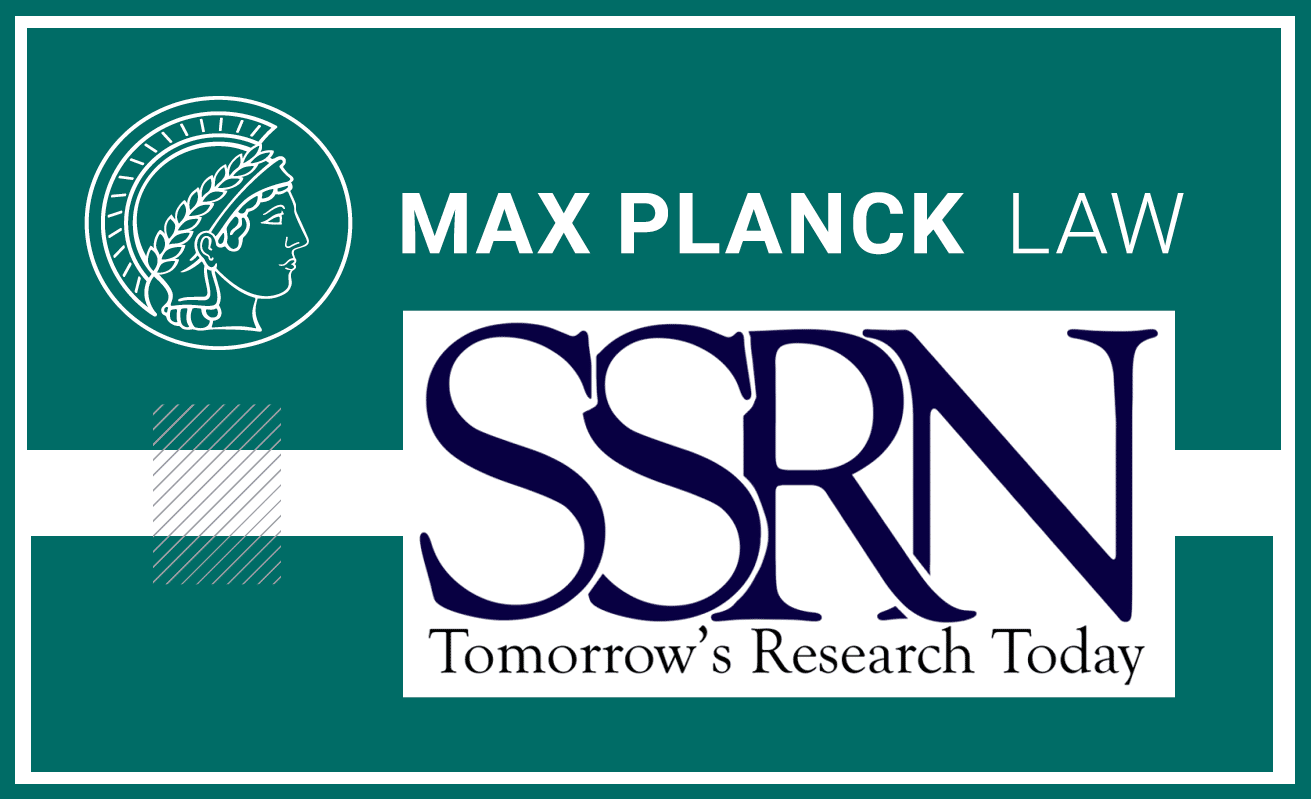A new institutional presence at the Social Science Research Network (SSRN) database provides a prominent and productive new global platform for Max Planck Law research. The law-related Max Planck Institutes’ individual SSRN Research Papers Series are highlighted at the new Max Planck Law landing page. New pre-prints uploaded to the Institutes’ Research Paper Series are also featured at the new landing page. Russell Miller, Head of Max Planck Law, praised the initiative. ‘Our exciting new institutional presence at SSRN allows us to present Max Planck Law’s legal researchers as part of a common scholarly community in much the same way that individual professors are embedded in and identify with a law faculty’.
The partnership with SSRN also has demonstrated the global prominence and impact of the Institutes in the Max Planck Law consortium. The Institutes’ pre-print uploads to SSRN, and the downloads of those papers from SSRN, are now counted in the aggregate for the purposes of SSRN’s influential ‘organizational rankings’. The results are impressive. Taken together, Max Planck Law research is among the most impactful in the world, standing shoulder-to-shoulder with the world’s most respected law faculties. SSRN counts the number of papers uploaded as an indication of an institution’s productivity. It counts the number of downloads as an indication of an institution’s impact. It reports that data on the basis of the latest 12-month period, on one hand, and on the basis of an institution’s entire history at SSRN, on the other hand. In both timeframes Max Planck Law is a global powerhouse of legal research, ranking at or near the top in papers submitted and total downloads. ‘It’s rewarding to see our researchers recognized alongside their colleagues at Harvard, Yale, Stanford, Oxford, Cambridge, Melbourne and other world-class law faculties’, said Miller.
SSRN is one of the world’s largest scholarly databases. It hosts a number of virtual ‘libraries’ that collect and present research on a disciplinary basis. It is proudly open access. There is no cost to upload research. Papers are professionally reviewed and then assigned to all relevant libraries to facilitate discovery and foster connections among researchers with common interests. It costs nothing to download research from SSRN. The database accepts pre-prints. For this reason, papers uploaded to SSRN are not regarded as ‘published’ papers and SSRN takes no copyright interest in the research uploaded to the database. The SSRN community consists of more than 500,000 scholars working in a wide range of disciplines. But there is a longstanding strength in legal research. SSRN’s ‘law library’, known as the ‘Legal Scholarship Network (LSN)’, features more than 150,000 contributing scholars and more than 300,000 uploaded papers. SSRN is not a passive repository for research. It also actively promotes papers through frequent email notices sent to subscribers, and increasingly through Twitter features that reach SSRN’s 23,000 followers. The effect of all this is increased chances at eventual publication, greater numbers of citations after publication, and more frequent reception in the popular media.
Max Planck Law is a network of the ten law-related Max Planck Institutes. The Institutes are located across Germany and Luxembourg. They host 20 prominent Directors working at the highest-level on nearly every subdiscipline of the law. The Directors work alongside, and supervise, nearly 400 PhD candidates and postdocs, all of whom benefit from generous stipends and the best possible research resources and conditions. Max Planck Law researchers come from all over the world. Eight of the ten Institutes have their own SSRN Research Papers Series.
